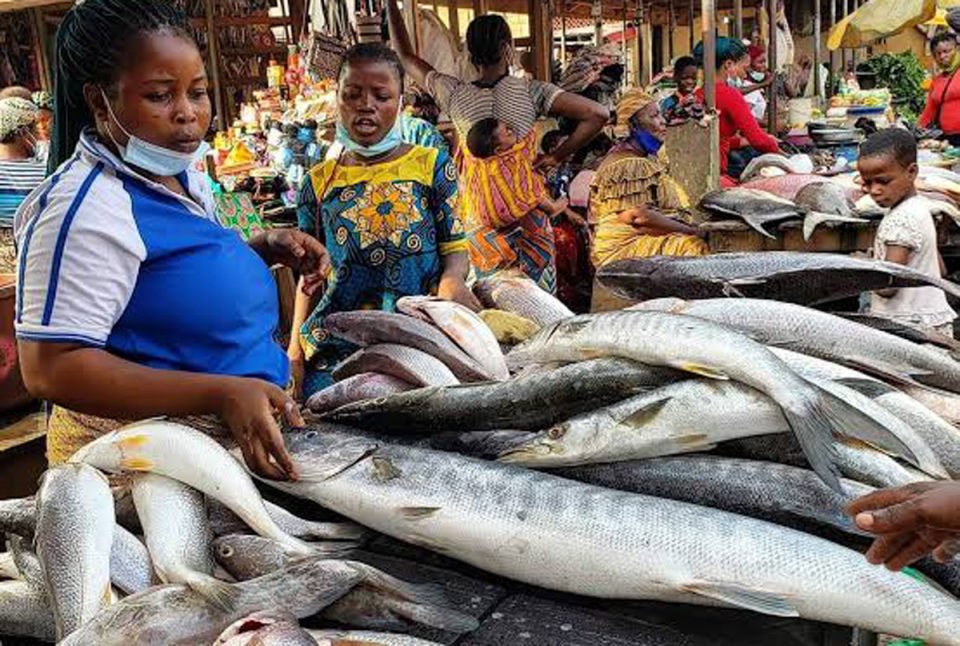Importers and traders in fish business value chain have continued to lament the foreign exchange (forex) restriction imposed on fish importation into the country.
According to them, the forex ban has done them a great deal of harm as sourcing hard currency in the black market has become more daunting with the skyrocketing prices of fish, especially stockfish.
Speaking to journalists on the sidelines of the Norwegian Seafood Council Seminar recently in Lagos, the stakeholders urged the Federal Government to consider removal of foreign restrictions on importation of fish.
Specifically, Mr. Greg Ilobinso, a major importer of stockfish appealed to the government to delist stockfish from lists of items on forex ban so as to make it affordable to end users.
Ilobinso said, “the amount of forex needed for this aspect of fish trade is infinitesimal and the continued retention of stockfish on the list will also continue to affect the value chain of stockfish trade.”
Also speaking, Mrs. Jerry Iwheraka, Managing Director of Friday Consult, said that Nigerians cannot afford to buy stockfish bodies because of the price hence, the increase in the importation of stockfish heads.
Iwheraka also said that government policy on the importation of stockfish will continue to rob the economy of the gains of the trade.
In his opening remarks, the Director for Africa for the Norwegian Seafood Council, Mr. Tronds Kostveit, stressed the need for the Federal Government to remove fish from the list of items on forex ban.
He said Nigeria remained the largest importer of Norwegian seafood, adding that a total of 43,251 metric tonnes of various fishes were imported last year.
He said that mackerel remains the most imported fish product brought into the country with a total of 14,997 metric tonnes, followed by herring with 13,845 metric tonnes, while stockfish recorded a total of 10,740 metric tonnes. He stated that for stockfish heads, a total of 9,925 metric tonnes were imported, while 815 tonnes of the stockfish bodies were imported during the year.
Reacting to the development, some stakeholders told journalists that the low tonnage of the importation of stockfish bodies was due to the forex restriction on the importation of stockfish.
However, the Federal Ministry of Agriculture and Rural Development tasked stockfish and seafood importers on proper documentation in order to avoid illegal importation.
Mr. James Umoru of FMARD’s Fisheries and Aquaculture Department, who made the call also encouraged the importers to register with the Department of Fisheries and Aquaculture for accurate data capturing of stockfish imports.
“Anyone that wants to go into importation of stockfish must first be licensed by the Agriculture Ministry via the Fisheries Department.
“We do not want anybody to import stockfish into this country illegally. We want to have full control over that case. We want to have a complete detail of what we bring into the country in terms of fish,” Umoru added.
For her part, Mrs. Felicia Udeh, an assistant director at the Federal Ministry of Trade and Investment, lauded the efforts of the Norwegian Seafood Council in the nation’s aquaculture sector.
Udeh said the Federal Government would continue to support and promote the development of the non-oil sector.
“The Norwegian Seafood Council is doing so well. As a government representative, one of our major responsibilities or mandates is to promote the non-oil sector of the economy. We try as much as possible to create an enabling environment for the organised private sector so that their businesses can thrive.
“We want to encourage the Norwegians as long as they want to continue to do business with us. The government of Nigeria will continue to create an enabling environment for them to thrive,” Udeh said.


previous post


